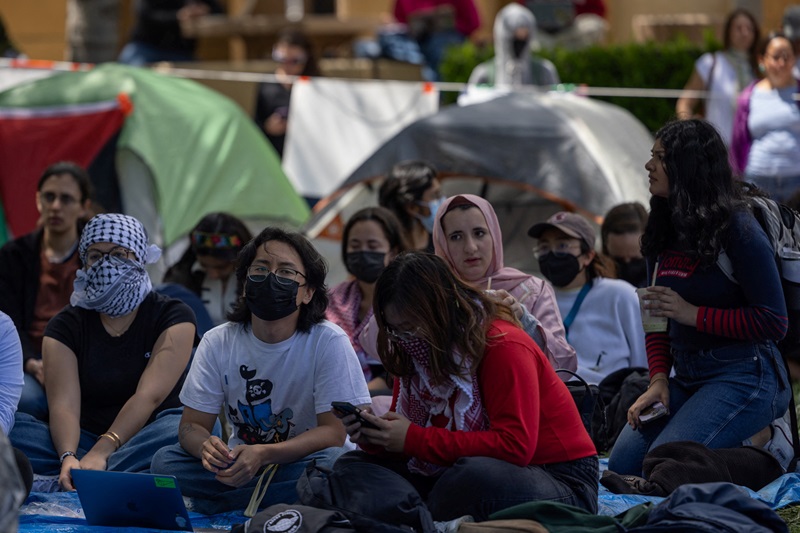When reflecting on the year 2002, the first word that comes to mind is “World Cup.” In its inaugural tournament held in Asia, the Taeguk Warriors achieved dramatic victories, reaching the semifinals for the first time in history. The impact of the Korea-Japan World Cup led to those born in 2002 being affectionately called “World Cup Babies,” symbolizing hope and pride.
These 2002-born individuals have once again come into the spotlight due to a different event: the COVID-19 pandemic. In early 2020, the rapid spread of COVID-19 led to social distancing measures, resulting in the cancellation of once-in-a-lifetime events like prom and high school graduation ceremonies. Instead, graduates had to be content with taking commemorative photos in their gowns and caps at home or in parks, as ceremonies were held online.
As they entered college, the pandemic forced these freshmen to begin their much-anticipated campus life with online orientation. Despite looking forward to the sense of achievement and excitement of college life, they spent their first year staring at computer monitors from home. Networking opportunities and dormitory experiences, typically highlights of freshman year, were lost.

When the pandemic ended, they faced another challenge: historic levels of inflation. Rising costs for rent and food meant that their remaining college years were financially strained.
As they finally approached graduation, another unexpected obstacle arose: the anti-war protests over the Gaza conflict. These protests led to the cancellation of USC’s all-university commencement, replaced by individual school ceremonies over four days starting June 8. Columbia University, the epicenter of the protests, also canceled its all-university graduation scheduled for June 15.
UC Berkeley, which also saw anti-war protest camps, proceeded with its commencement on June 11 at California Memorial Stadium. Although the ceremony initially went smoothly with over 6,700 graduates and 23,000 guests, tensions escalated when several graduates stood up holding Palestinian flags and chanting for liberation. This prompted some guests to display Israeli flags, heightening the tension.
Associate Vice Chancellor and Dean of Students Sunny Lee, who was overseeing the event, acknowledged the hardships in Gaza but urged cooperation to allow the graduates, who missed their high school graduation due to the pandemic, to have a proper university graduation.
Despite her plea, the protests continued, and the demonstrators were asked to leave the venue. Although they temporarily left, they returned shortly after, resuming their protest and swelling in numbers. Lee’s subsequent appeal for the families and friends who had traveled to celebrate the graduates was met with thunderous applause and cheers from the audience.
Yet, the ceremony remained tumultuous, and without intervention from security or police, it ended in a disordered atmosphere, marking a potentially once-in-a-lifetime event for the 2002-born graduates.
Regardless of the noble cause, imposing one’s rights and demands on others’ significant life events can be overstepping. The university had already allocated a portion of the ceremony to the protesters. If the protestors had reciprocated with consideration for the graduates and guests, the “anti-war” message might have shone even brighter.
The keynote speaker that day, Cynt Marshall, the first Black woman CEO in NBA history, offered memorable advice to the graduates: “It’s not where you live, it’s how you live. Do the right thing. You are now playing the game of life. The ball is in your hands.”
These 2002-born individuals have experienced numerous unforeseen challenges. Just as the ground hardens after rain, it is hoped that these resilient graduates, armed with the lessons learned through adversity, will seize victory in the competitive game of life with the “ball” now in their hands.

By Naki Park
The author is a business reporter of the Korea Daily.

![Clovine accelerates global expansion in collaboration platform market Website of Clovine, a cloud-based project management provider [Screenshot]](https://www.koreadailyus.com/wp-content/uploads/2025/04/0403-clovine-100x70.jpg)

![Hangar images indicate North Korean advances in military drone domain Satellite photos taken on March 28, included in Beyond Parallel's report on North Korea, shows what appears to be seven new drone hangars at the Banghyon Air Base. [SCREEN CATPURE]](https://www.koreadailyus.com/wp-content/uploads/2025/04/0402-Hangar-100x70.jpg)
